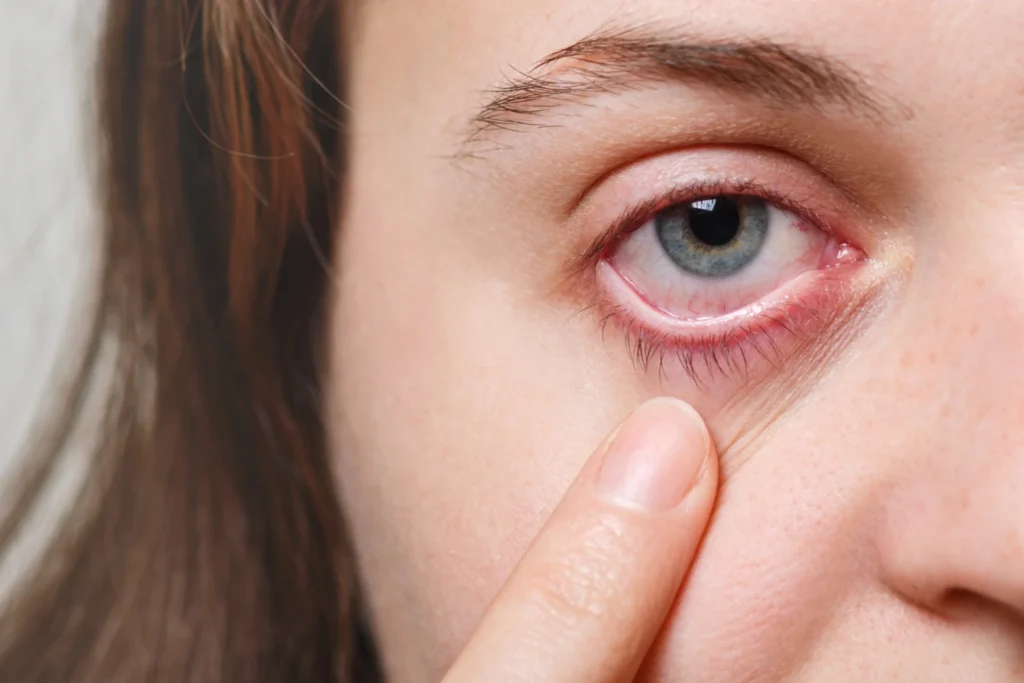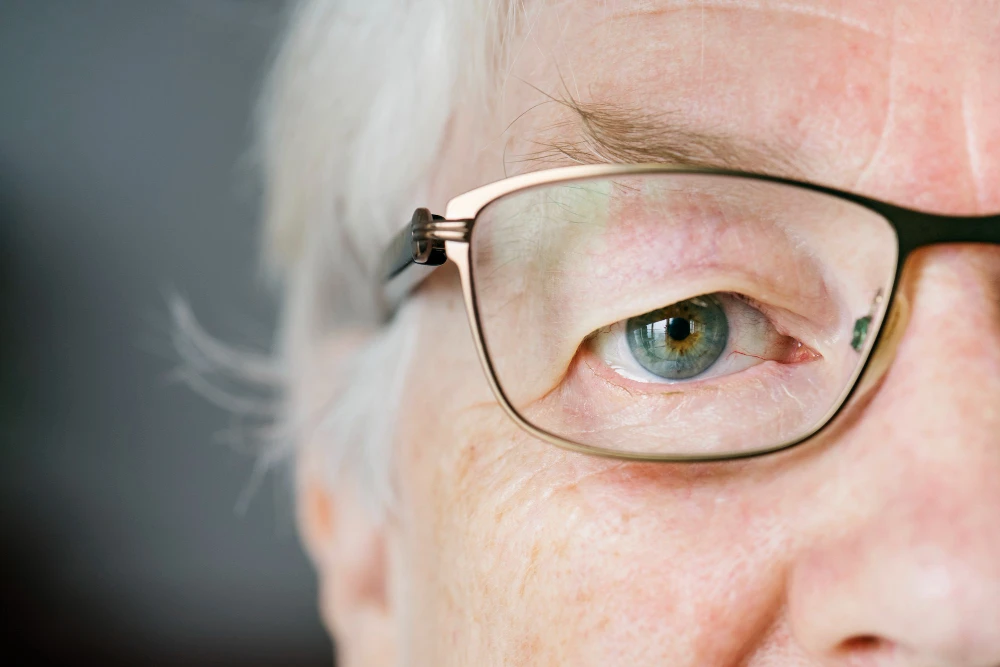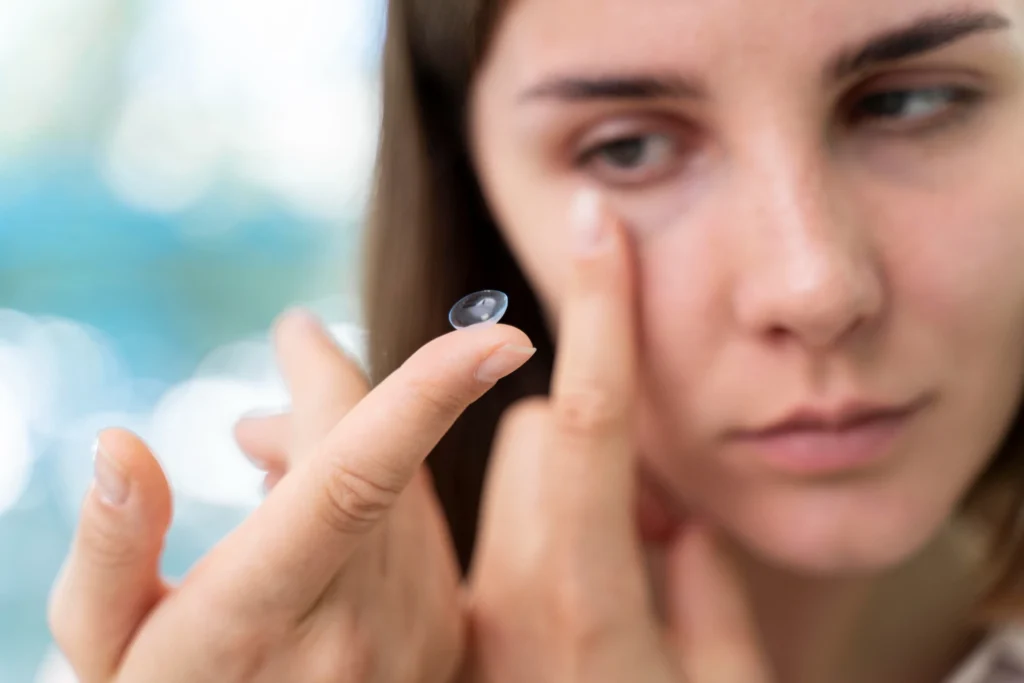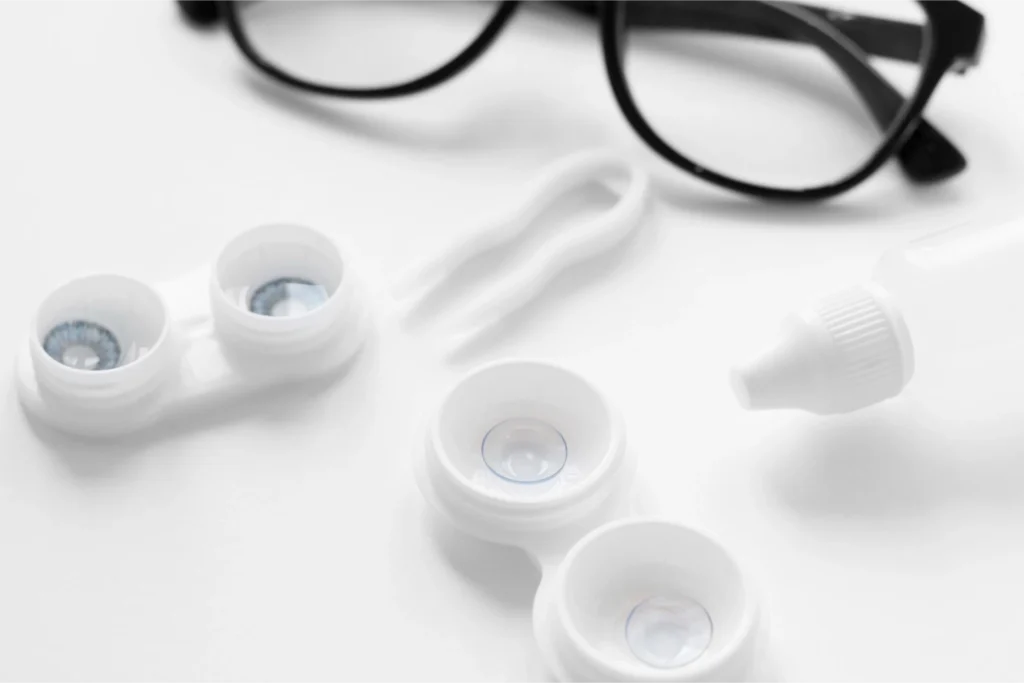Pink eye and eye allergies can cause similar symptoms but have different causes and treatments. In this post, we’ll explore the distinctions between pink eye and eye allergies. We’ll explore symptoms, causes, and treatment options to help you differentiate between the two.
Let’s begin by understanding more about eye allergies and how they differ from pink eye.
Infection vs. Allergies
Determining whether your pink eye is due to a bacterial or viral infection, or if it’s triggered by allergies or other irritants, can be challenging. However, it’s crucial to identify this difference as bacterial and viral pink eyes are highly contagious, whereas pink eye from allergies is not.
Additionally, the approach to treating allergic pink eye differs from that of treating infectious pink eye. Deciding whether your pink eye is an infection-related issue or an allergic reaction or irritation issue depends on the details of your symptoms and your medical background.
This article also gives a wide information on how to distinguish between these causes and their treatments.
What is Pink Eye?
Pink eye, also known as conjunctivitis, is an inflammation or infection of the conjunctiva, the thin clear tissue that lines the inside of the eyelid and covers the white part of the eyeball. It can affect one or both eyes and is highly contagious if caused by a bacterial or viral infection.
Symptoms of Pink Eye
Pink eye symptoms vary depending on the cause and may include:
- Redness in the eye or inner eyelid
- Increased tear production
- Thick discharge, often crusting over the lashes
- Itchiness or burning sensation
- Blurred vision
- Sensitivity to light
Causes of Pink Eye
There are three main causes of pink eye: viral, bacterial, and allergic.
Viral Conjunctivitis
It is the most common type and is usually caused by the same viruses that cause the common cold. It is highly contagious and can spread through coughing and sneezing.
Bacterial Conjunctivitis
It is caused by bacteria and can cause severe symptoms. It can spread through direct contact with infected hands or items that have touched the eye.
Allergic Conjunctivitis
It is caused by eye irritants such as pollen, dust, and animal dander. It is not contagious.
Treatment Options for Pink Eye

The treatment for pink eye depends on its cause.
- There is no specific treatment for viral conjunctivitis. It usually clears up on its own within a week or two. To relieve symptoms, use cool compresses and artificial tears. Avoid wearing contact lenses and makeup until the infection clears.
- This can be treated with antibiotic eye drops or ointments prescribed by a doctor. Symptoms usually improve within a few days.
- Avoiding the allergen is the best way to treat this type of pink eye. Over-the-counter or prescription allergy medications and eye drops can help relieve symptoms.
What are Allergies?
Allergies happen when the body’s defense system responds to an unfamiliar material, like pollen, animal fur, or specific foods. These reactions can impact different areas of the body, such as the eyes, nose, throat, lungs, and skin.
Symptoms of Allergies
Allergy symptoms can range from mild to severe and may include:
- Sneezing
- Runny or stuffy nose
- Itchy or watery eyes
- Itchy nose, mouth, or throat
- Coughing
- Swelling
- Rash or hives
- Difficulty breathing (in severe cases)
Causes of Allergies
Allergies are caused by an overactive immune system. When the body encounters an allergen, it releases chemicals such as histamines, which cause allergy symptoms. Common allergens include:
- Pollen from trees, grass, and weeds
- Dust mites
- Mold spores
- Animal dander
- Certain foods (e.g., peanuts, shellfish)
- Insect stings
- Medications
Treatment Options for Allergies
Treating allergies involves avoiding known allergens and managing symptoms.
- The most effective strategy to avoid allergic responses is to avoid allergens. This could involve staying indoors during high pollen seasons, utilizing air purifiers, and keeping dogs out of specific areas of the house.
- Over-the-counter and prescription medications can help relieve allergy symptoms. These include antihistamines, decongestants, nasal sprays, and eye drops.
- For severe allergies, doctors may prescribe allergy shots (immunotherapy). Regular injections of the allergen in modest amounts are used to gradually establish immunity.
Comparing Pink Eye and Allergies
While pink eyes and allergies can share some similar symptoms, such as red, itchy, and watery eyes, they have different causes and treatments.
Contagiousness
Pink eye caused by viral or bacterial illnesses is contagious, while allergic conjunctivitis is not.
Associated Symptoms
Pink eye is frequently accompanied by a discharge that can crust over the eyelashes, whereas allergies are usually accompanied by sneezing, a runny nose, and itchy throat.
Duration
Pink eye caused by infections usually resolves within a week or two, while allergy symptoms can persist as long as the person is exposed to the allergen.
Finally, understanding the difference between pink eye vs. allergies is crucial for effective treatment. Recognizing symptoms and causes can lead to better management. If pink eye is suspected, seek medical advice for antibiotics. For allergies, identifying triggers and using appropriate medications can improve quality of life. Consult a healthcare provider for a personalized diagnosis and treatment plan.
Protect Your Vision – Schedule an Eye Exam Today!
You only have one pair of eyes. Regular eye exams are crucial, even if you don’t need a new prescription. Early detection and management of eye conditions can prevent serious vision problems in the future. Let the experienced eye doctor at Vision Gallery take care of your family’s eye health.
Contact Us Today: Email: info@visiongallerykaty.com | Phone: 281-377-0219
Don’t wait – book your appointment now and keep your eyes healthy!






